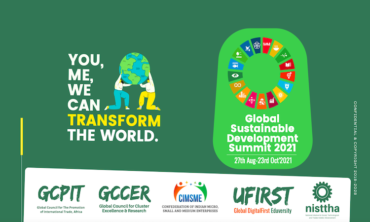
Contact
Dr. Fraddry D’Souza
Dr. Fraddry D’Souza is a Fellow and Area Convenor, The Coastal Ecology and Marine Resources Centre, TERI Goa. Prior to joining TERI, Fraddry has worked as a Scientific Researcher in TNO Science and Industry, the Netherlands, where he worked in applied marine industrial research areas. His most frequent subjects of interest are ranging from Coastal resources management, Water management & technology, Aquaculture, Biodiversity assessment, marine biofilm and biofoulin, & microbiologically influenced corrosion.
He received his PhD degree from Goa University, in 2004, wherein the entire research study was carried out at the National Institute of Oceanography (NIO), Goa and also awarded CSIR-Senior Research Fellowship. He was awarded European Erasmus Mundus Scholarship for “Joint European Masters in Water and Coastal Management” at University of Algarve, Portugal and University of Cadiz, Spain. He also received Dutch NFP (2016) and OKP (2019) Fellowship for short course in Wageningen University, The Netherlands.
He has involved in several national and international projects as lead investigator and delivered several talks in conferences and seminars both national and international. He had also served as a member of Technical Advisory Committee (TAC) of Goa State Pollution Control Board and currently a TAC member of Goa State Waste Management Cooperation (GSWM). He was also a member of three committees of Government of Goa for Preparation of draft Coastal Zone Management Plan. He has published more than 25 research papers in national and international peer reviewed journals on range of topics.
Past work on SDG14 includes highlighting the unsustainable use of ocean resources and stresses upon challenges that need to be addressed for achieving the sustainability of our oceans by linking it to SDG14 targets. A chapter is published in the book ‘People, Planet, and Progress Beyond 2015’. My recent work include a Policy brief at T20 Saudi Arabia 2020 on “G20’S Role in Marine biodiversity – policy options and best practices for enhancing marine protected areas (MPA)”, highlighting that preservation and conservation of marine biodiversity is critical to ensure a healthier ocean and enhance ecosystem resilience. Meeting the 10% MPA target set by the 2020 Aichi Biodiversity Targets and the SDGs by G20 countries is essential for the transboundary challenge of protecting marine biodiversity. I am currently involved in understating the role of biodiversity conservation and ocean health in the Blue Economy framework and its challenges and opportunities to conserve and sustainably use marine resources.


